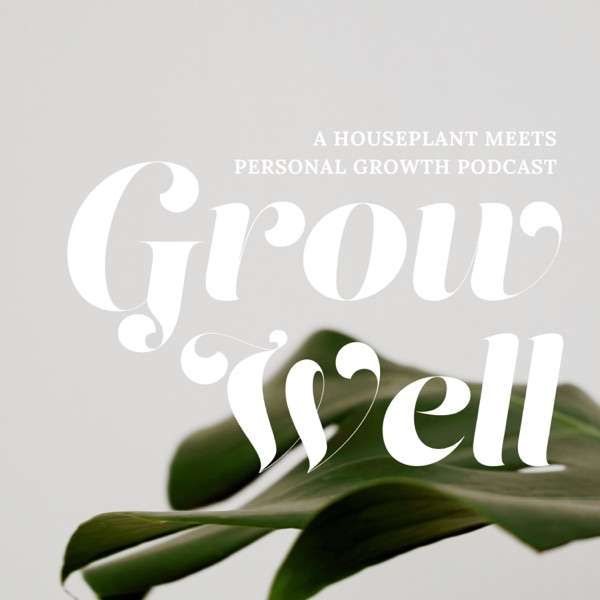This episode of "The Poor Proles Almanac" explores hydrogen power, examining its potential to address the world's energy crisis while acknowledging the complexities and challenges associated with its implementation. Hosts Andy, Elliott, and Matt engage in a lively discussion, covering the history, science, and potential applications of hydrogen technology while considering its economic, geopolitical, and environmental implications.
Hydrogen Power: A Historical Overview and the Basics of Fuel Cells
The episode begins by dispelling the notion of hydrogen power as a futuristic concept, highlighting its long history dating back to the 19th century. The hosts point to the development of the first working hydrogen fuel cell in 1842 and its use in powering tractors by 1959, culminating in its application in the Gemini 3 space mission in 1965.
The hosts explain that a fuel cell facilitates a controlled chemical reaction between hydrogen and oxygen to generate electricity, producing water as a byproduct. This process, distinct from direct combustion, offers a cleaner and more efficient energy conversion method.
The "Duck Problem" and the Need for Energy Storage
The hosts introduce the "duck problem," a concept illustrating the mismatch between peak solar energy generation (mid-day) and peak energy consumption (evenings). This disparity underscores the need for efficient energy storage solutions to bridge the gap between supply and demand.
They discuss the limitations of current approaches like home batteries, especially as electric vehicle adoption increases, putting further strain on the grid during peak hours.
Hydrogen Cars vs. Battery-Powered Vehicles: A Comparative Analysis
The episode delves into the potential of hydrogen-powered cars, referencing President George W. Bush's 2003 State of the Union address, which touted hydrogen cars as a key solution to reducing pollution.
However, the hosts acknowledge the challenges associated with hydrogen cars, particularly the issue of energy density. While hydrogen boasts high energy density by weight, its low energy density by volume necessitates bulky and expensive high-pressure tanks cooled to extremely low temperatures. This logistical hurdle makes battery-powered vehicles a more practical option for personal transportation.
Safety concerns related to hydrogen storage are also addressed, with the hosts emphasizing that compressed hydrogen, despite the high pressures involved, dissipates much quicker than gasoline in the event of a container rupture, making it arguably safer than traditional fuel tanks.
The Role of Infrastructure and Efficiency Considerations
The episode underscores the importance of a robust infrastructure for widespread hydrogen adoption, noting the need for a network of refueling stations equipped with specialized high-pressure storage and dispensing systems. This infrastructure development poses a significant cost barrier compared to setting up charging stations for electric vehicles.
Efficiency losses associated with hydrogen production, storage, and conversion are also acknowledged, with the hosts emphasizing that the overall process results in a significant energy penalty.
The Colorful World of Hydrogen Production: Green, Gray, and Blue
The episode examines various methods of hydrogen production, categorized by their environmental impact:
- Green hydrogen: Produced through electrolysis using renewable energy sources, this method is considered the most sustainable but currently represents a tiny fraction of global production.
- Gray hydrogen: Derived from steam methane reforming of natural gas, this process is the most common but releases significant amounts of CO2.
- Blue hydrogen: Similar to gray hydrogen but incorporates carbon capture technology to reduce emissions, though at a higher production cost.
The hosts highlight the economic and logistical factors driving the dominance of gray hydrogen, emphasizing the current reliance on fossil fuels and the use of hydrogen as an intermediate product in industries like fertilizer production and petroleum refining.
The Potential of Green Hydrogen and Shifting Economic Landscapes
The declining costs of renewable energy sources, particularly wind and solar, are presented as a promising trend that could make green hydrogen more economically viable in the future.
The episode also explores factors that could further increase the attractiveness of green hydrogen:
- Vulnerability to Disruptions: The decentralized nature of electrolytic hydrogen production makes it less susceptible to disruptions caused by natural disasters or geopolitical conflicts.
- Water Economy: Hydrogen fuel cells produce distilled water as a byproduct, offering potential benefits for water-stressed regions.
- Reduced Reliance on Rare Earth Metals: Advances in fuel cell technology are reducing the amount of platinum required, potentially mitigating the ethical and environmental concerns associated with rare earth metal mining.
Hydrogen Power in Heavy Lift Applications: Ships, Trucks, and Beyond
Recognizing the limitations of hydrogen in personal vehicles, the episode shifts focus to its potential in heavy lift applications like cargo ships, trucks, and buses. These sectors offer greater economies of scale, justifying the investment in expensive equipment and infrastructure.
The Case for Hydrogen-Powered Cargo Ships
The episode makes a compelling case for hydrogen-powered cargo ships, citing a 2020 study by the International Council on Clean Transportation, which found that 99% of trans-Pacific voyages could have been powered by hydrogen with minimal modifications to existing ships.
The hosts highlight the environmental benefits of replacing heavy fuel oil (bunker fuel) with hydrogen, particularly in the context of the increasing use of Arctic shipping routes, which pose significant risks to the fragile polar ecosystem.
Iceland and Hawaii: Models for Hydrogen-Based Energy Export
The episode examines the experiences of Iceland and Hawaii, both of which have invested in hydrogen technology and renewable energy programs. While early attempts to implement hydrogen-powered transportation faced challenges, their strong renewable energy infrastructure positions them as potential exporters of green hydrogen.
The strategic location of these islands along major shipping routes makes them ideal hubs for supplying hydrogen fuel to vessels traversing the increasingly navigable Arctic waters.
Geopolitical Implications of Arctic Shipping and Hydrogen Production
The episode delves into the geopolitical implications of a future dominated by Arctic shipping routes, highlighting the competition between nations for control and influence in the region.
The melting Arctic ice opens up shorter shipping routes, reducing travel times and costs but also raising concerns about environmental damage and resource exploitation.
The episode focuses on the potential for the United States to leverage its Alaskan territory, which boasts significant offshore wind potential and a strategic location for hydrogen production and distribution. The development of a hydrogen-based fuel economy in the Arctic could bolster American influence while promoting environmental protection.
Hydrogen: A Unique and Abundant Resource
The episode concludes by emphasizing the unique characteristics of hydrogen as an energy source, contrasting its abundance and potential for decreasing production costs with the finite nature and eventual depletion of fossil fuels.
The hosts draw parallels between the historical progression of energy sources (wood, coal, oil) and communication technologies (telegraph, radio, internet), suggesting that hydrogen, like the internet, has the potential to democratize access to energy and reshape global systems.
Challenges and Considerations for a Just and Sustainable Hydrogen Economy
The episode acknowledges the need to address the social and environmental challenges associated with a hydrogen-based energy system:
- Ensuring Equitable Access: The potential for low-cost hydrogen production raises questions about how to guarantee access as a human right and prevent its monopolization by powerful entities.
- Protecting Local Ecologies and Communities: The harvesting of renewable energy for hydrogen production must be done in a way that minimizes environmental impacts and respects the rights of indigenous communities.
The episode leaves listeners with a sense of optimism about the potential of hydrogen power while urging thoughtful consideration of the social, political, and environmental complexities surrounding its implementation. It encourages engagement in informed discussions about the design of institutional frameworks that ensure a just and sustainable hydrogen economy.
For sources, transcripts, and to read more about this subject, visit: www.agroecologies.org
To support this podcast, join our patreon for early, commercial-free episode access at https://www.patreon.com/poorprolesalmanac
For PPA Restoration Content, visit: www.restorationagroecology.com
For PPA Merch, visit: www.poorproles.com
For PPA Native Plants, visit: www.nativenurseries.org
To hear Tomorrow, Today, our sister podcast, visit: www.tomorrowtodaypodcast.org/
Hosted by Simplecast, an AdsWizz company. See pcm.adswizz.com for information about our collection and use of personal data for advertising.

 Our TOPPODCAST Picks
Our TOPPODCAST Picks  Stay Connected
Stay Connected







